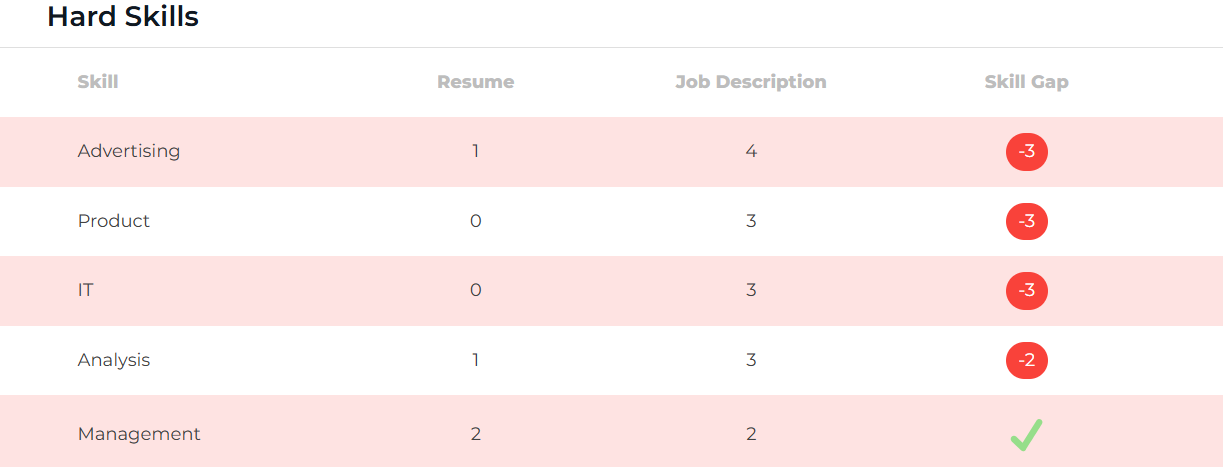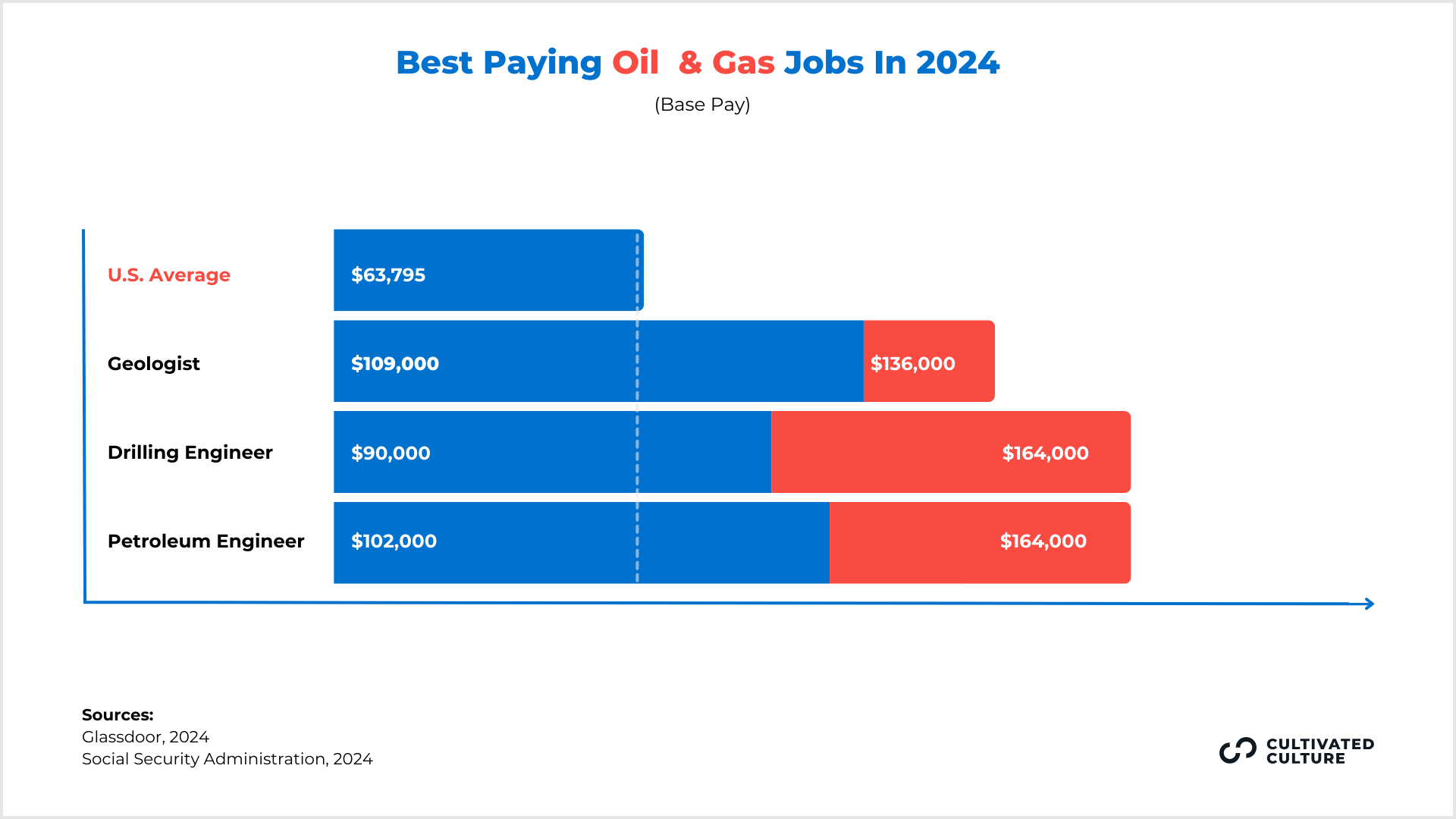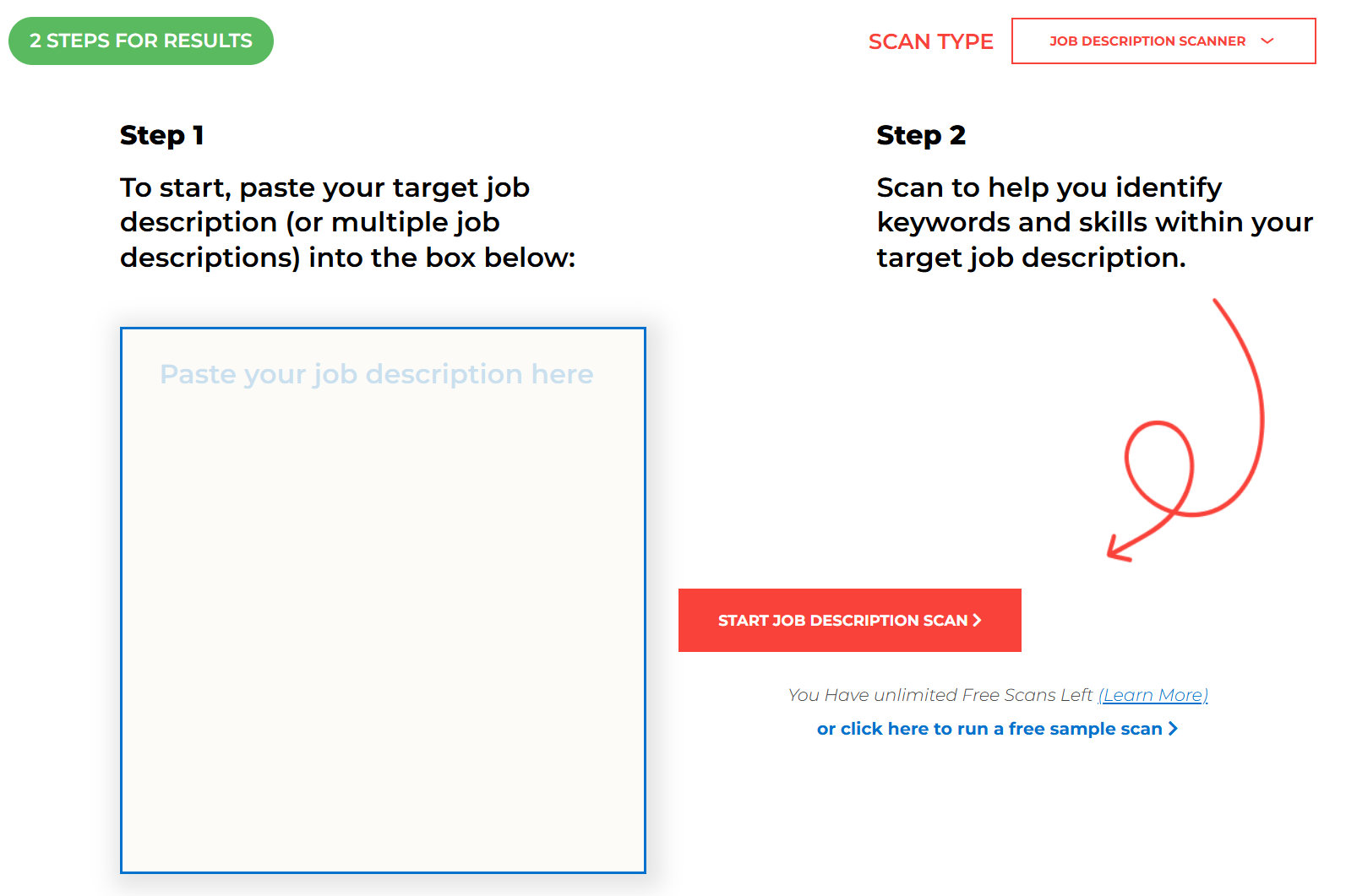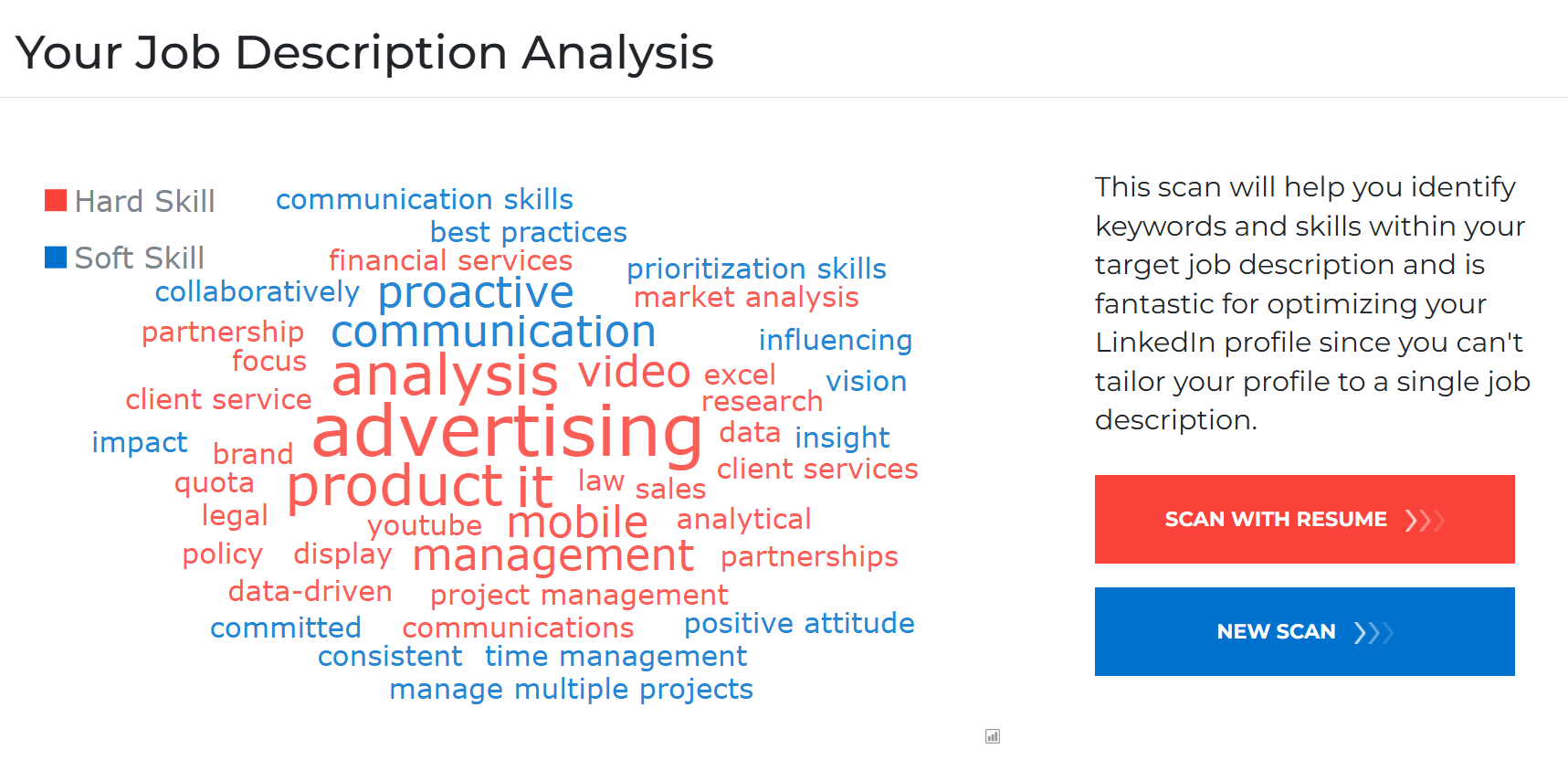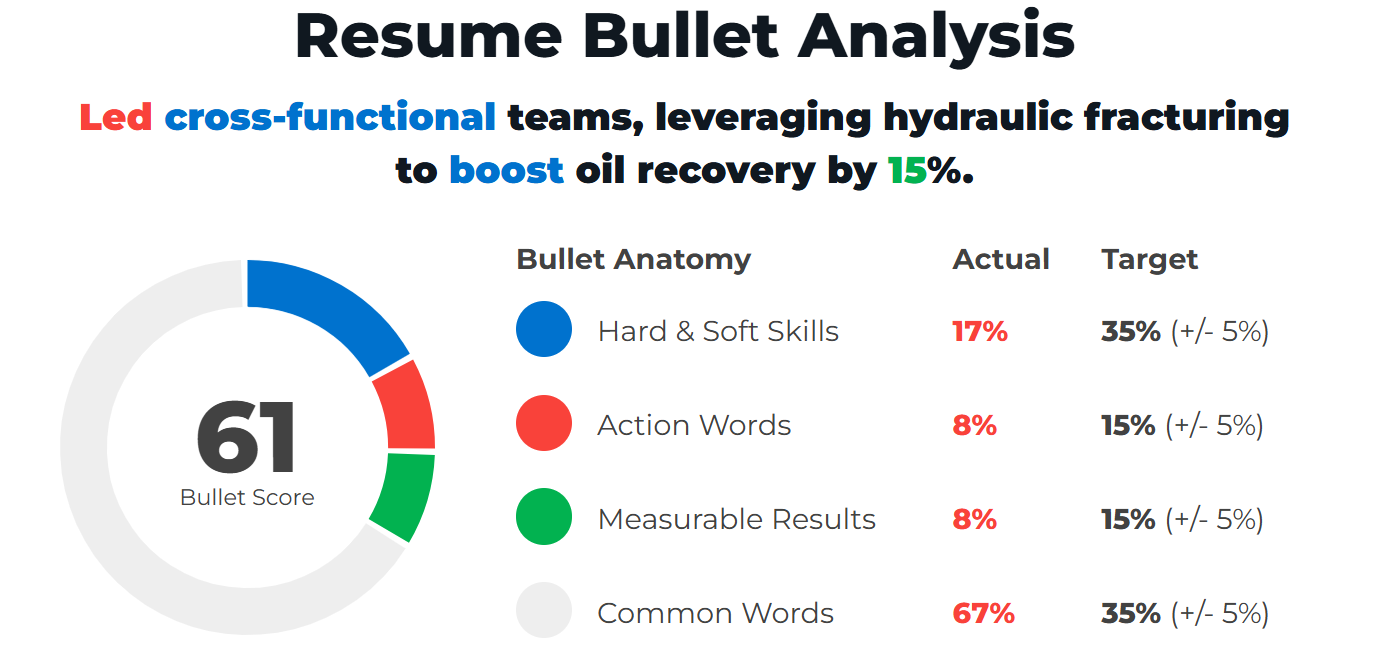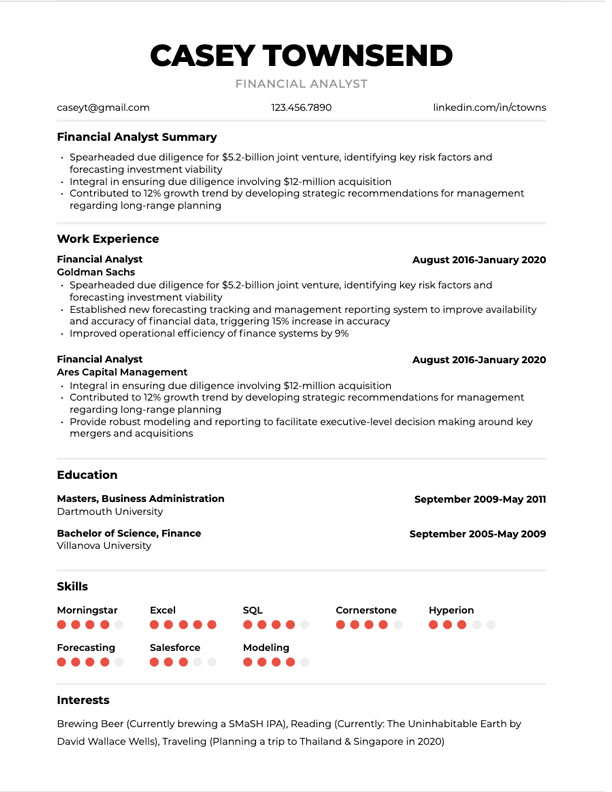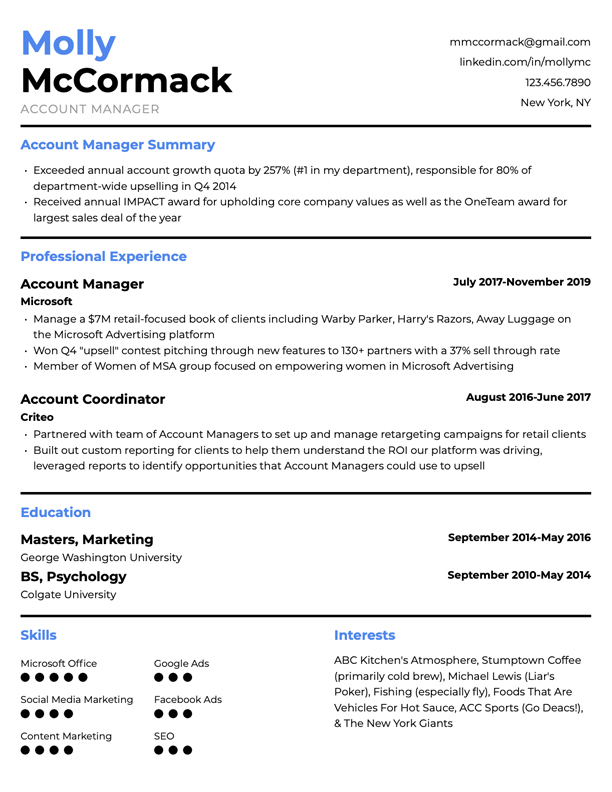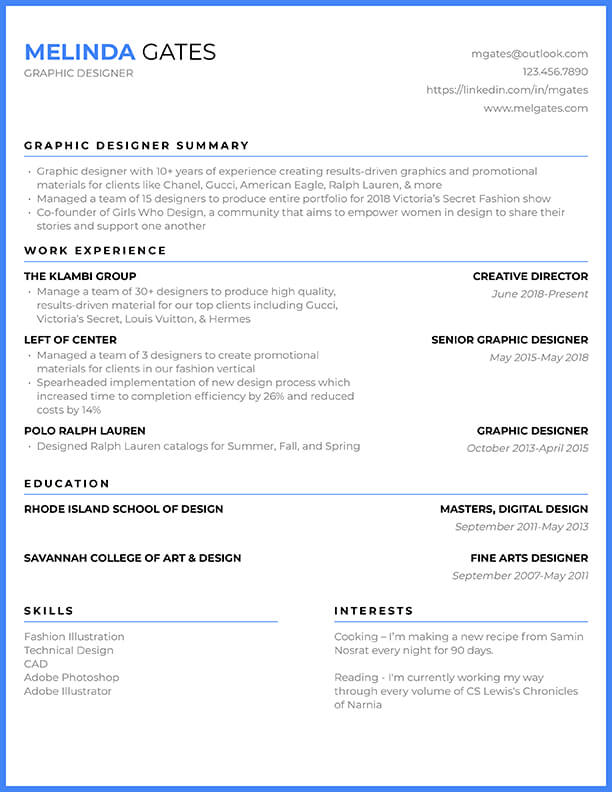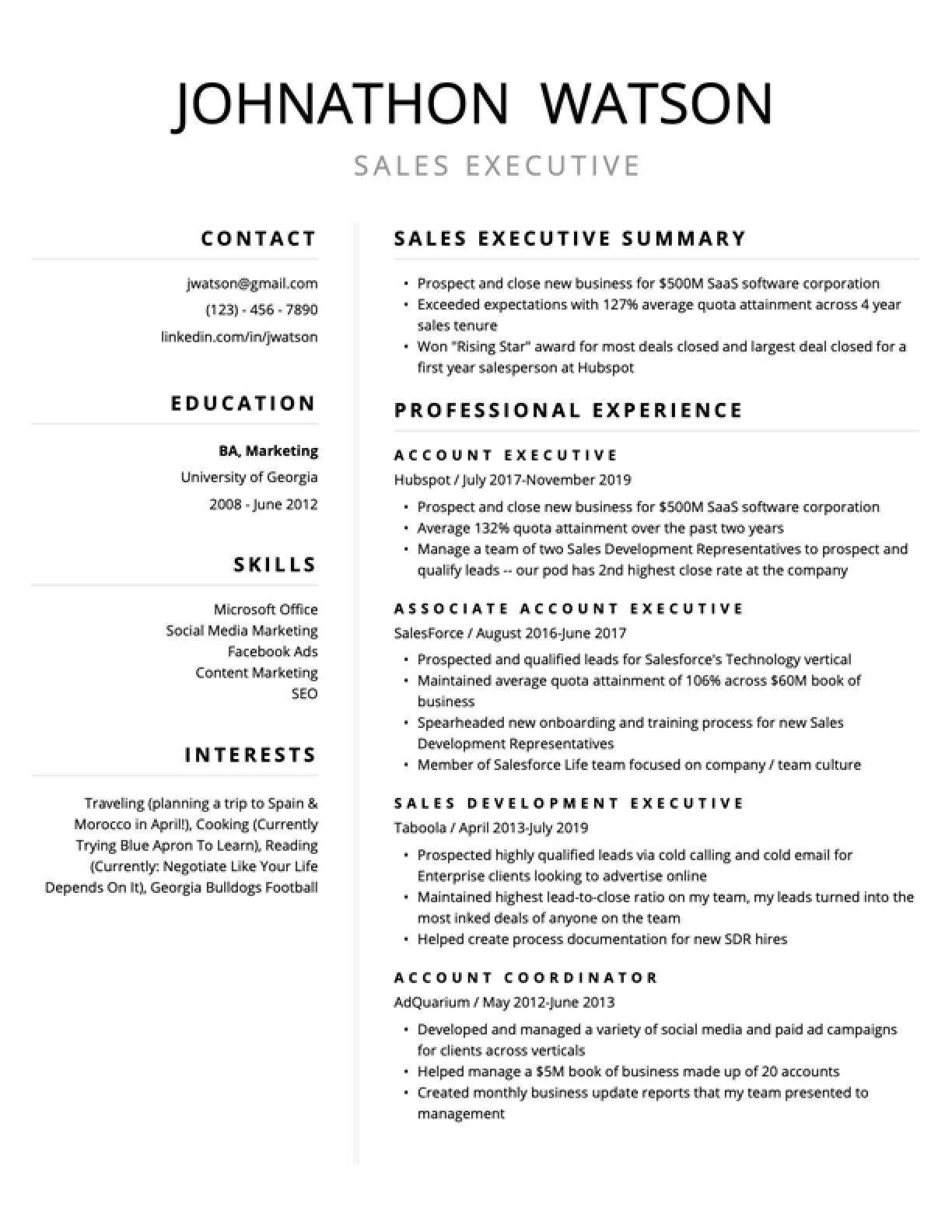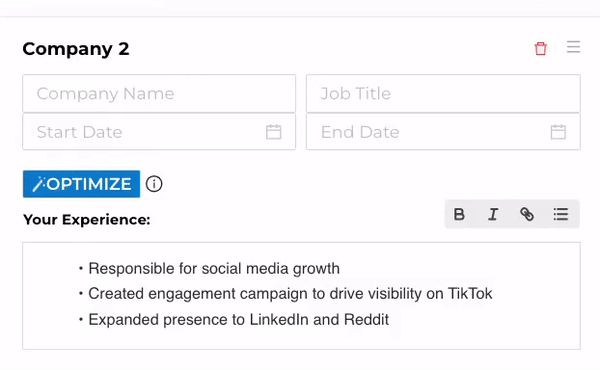If you’ve landed on this article, you probably have tons of questions about working in the oil and gas industry and are wondering if this is a career path worth pursuing.
Good news – you have come to the right place! Whether you're an entry-level professional or well-established in another industry and looking for a career change, this article is for you!
In this article, we’ll be covering the following topics:
- What Is The Oil and Gas Industry?
- What Companies Are In The Oil and Gas Field?
- What Are The Job Options In Oil and Gas?
- What Are The Skills Needed For Oil and Gas?
- What Do Oil and Gas Jobs Pay?
- Is Oil and Gas A Good Career Path? (Our Verdict)
- How To Build A Job-Winning Oil and Gas Resume
Let’s dig in!
What Is The Oil and Gas Industry?
The oil and gas industry involves the extraction, refining, distribution, and marketing of petroleum products and natural gas. It plays a critical role in powering global economies, providing fuel for transportation, heating, and electricity generation.
The industry is divided into three key segments:
- Upstream: Exploration and production of oil and natural gas.
- Midstream: Transportation, storage, and processing of oil and gas.
- Downstream: Refining, marketing, and distribution of petroleum products to consumers.
What Companies Are In The Oil and Gas Field?
Many large companies operate in the oil and gas industry. Here are some examples from different areas:
- Exploration & Production: Companies like ExxonMobil, Chevron, and BP are leaders in exploring and extracting crude oil and natural gas.
- Refining & Marketing: Shell and Valero focus on refining crude oil into finished products like gasoline and distributing them to consumers.
- Integrated Oil & Gas: Companies like TotalEnergies and Eni manage both upstream and downstream operations, from extraction to distribution.
- Natural Gas: Firms like ConocoPhillips and Chesapeake Energy specialize in the extraction and distribution of natural gas.
These companies are responsible for maintaining the global energy supply chain and ensuring that petroleum products are available to meet demand.
What Are The Job Options In Oil and Gas?
When looking for jobs in the oil and gas industry, you can either work in roles within the sector – for example, taking a Finance position at a company that operates in the field – or take a position that directly contributes to exploration, production, or distribution.
In this section, we’ll cover the most common job options in the field.
Jobs In Refining & Distribution
Refining and distribution roles ensure that oil and gas products are processed and transported efficiently. The most common roles in this area are:
- Refinery Operator: Manages the daily operations of a refinery to ensure that crude oil is processed into usable products.
- Pipeline Technician: Ensures the safe and efficient transportation of oil and gas through pipelines.
- Logistics Coordinator: Manages the movement of petroleum products from refineries to distribution centers and consumers.
Jobs In Exploration & Production
Exploration and production roles focus on finding and extracting oil and gas reserves. The most common roles in this area are:
- Petroleum Engineer: Designs and develops methods for extracting oil and gas from underground reservoirs.
- Geologist: Analyzes geological data to identify potential drilling sites and assess resource availability.
- Drilling Engineer: Oversees the drilling process and ensures safe and efficient extraction of oil and gas.
What Are The Skills Needed For Oil and Gas?
Learning the skills required for each position is very important. You might have to address some skill gaps or you may already have well-developed skills that you can leverage as you seek a new role.
Here are the required skills for the most common roles in the oil and gas industry:
Entry-Level Roles:
- Technical Proficiency: Basic understanding of engineering principles and technical systems, especially for entry-level engineering roles.
- Safety Awareness: Adhering to strict safety standards is crucial in all areas of oil and gas.
- Problem-Solving: The ability to quickly assess and solve operational challenges that arise in extraction or processing.
Mid-Senior Manager Roles:
- Leadership: The ability to lead, motivate, and manage teams across various functions, from production to marketing.
- Project Management: Managing drilling operations, refinery upgrades, or sales initiatives from start to finish.
- Strategic Thinking: Developing long-term strategies to grow market share or improve production efficiency.
Mid-Senior Technical Roles:
- Engineering Expertise: In-depth knowledge of oil and gas extraction, refining, and transportation processes.
- Data Analysis: Using data to improve operational efficiency and make informed business decisions.
- Innovation: The ability to develop new methods or technologies to enhance production or reduce environmental impact.
Finding Your Fit With Oil and Gas Roles
Want to find out if you are the right fit for a role in the oil and gas industry?
We've got you covered.
Here's a simple, step-by-step guide to find out if you have the skills to take a new position in the oil and gas industry!
- Head over to LinkedIn and search for oil and gas industry roles.
- Copy the job description of the role that sparked your interest.
- Head over to ResyMatch.io (or use our shortcut below)
- Grab a copy of your most updated resume.
- Upload your resume on the left side.
- Paste the job description on the right side.
- Hit “Start Resume Scan.”
Boom! ResyMatch will compare and score your resume versus the job description and identify skill gaps.
ResyMatch will also provide best practices you can use to improve your resume and will ensure that your resume is ATS compliant (ATS is a software that recruiters use to track candidates through their hiring process).
Use our shortcut below to get started:
What Do Oil and Gas Jobs Pay?
Now that we’ve covered the most common jobs in the oil and gas industry, you might be wondering how much these roles pay.
To answer this question, let’s head over to one of our favorite tools for salary research: Glassdoor.
According to Glassdoor, the base salary for the most common oil and gas industry jobs in 2026 are:
- Refinery Operator: $46K – $69K / year base pay (USD)
- Pipeline Technician: $51K – 76K / year base pay (USD)
- Logistics Coordinator: $45K – 67K / year base pay (USD)
- Petroleum Engineer: $102K – $164K / year base pay (USD)
- Geologist: $109K – $136K / year base pay (USD)
- Drilling Engineer: $90K – $164 / year base pay (USD)
Best Paying Jobs In Oil and Gas Compared To The Average U.S. Salary In 2026
According to the Social Security Administration, the average salary in the U.S. is $63,795.
This is what the best-paying jobs in the oil and gas industry look like when we put them in perspective:
Geologist, Drilling Engineer, and Petroleum Engineer are the highest-paying roles in the oil and gas industry, with an earning potential of up to 157% higher than the U.S. average.
Is Oil and Gas A Good Career Path? (Our Verdict)
Oil and gas is a good career path for people who have an interest in energy production, engineering, and project management.
The oil and gas industry is essential for powering the world’s economy and maintaining energy supplies. Companies like ExxonMobil, Shell, and BP are leaders in the field.
If you feel like this might be the career path for you, then be sure to dive into the next section where we will cover the best strategies to help you land a job in the field:
How To Build A Job-Winning Oil and Gas Resume
Here's a fact most people don't usually realize: you don't need traditional experience to take on a new role.
You can leverage your unique background, experiences, and skills for nearly any position, as long as you sell it.
Think about your resume as an advertisement for yourself. Like any ad, you want it to be compelling and visually attractive, right? That's exactly what you will do with your resume!
You will start by:
1. Leveraging The Best Keywords For Your Target Role
Remember ResyMatch.io, that resume and job description scanner tool we mentioned earlier in this article?
We first showed you how you can scan and compare your resume with your target job description to find out how your skills match the role.
However, if you don't have a resume yet, you can still get great insight from this tool by running a job description scan.
Here's how: head over to ResyMatch.io and, in “Scan Type,” select “Job Description Scanner.” Then, copy the job description for your target role and paste it into the box on the left.
ResyMatch.io will provide a list of hard and soft skills that apply to the role. You can use these skills as keywords when building your resume.
Skim through the list to get ideas for keywords you can leverage on your resume.
2. Writing Compelling Resume Bullets
This is where you'll start crafting a resume that sells!
You'll want your resume bullets to have just the right amount of hard and soft skills, action words, measurable results, and common words.
This means a compelling oil and gas industry resume bullet for someone applying for a Petroleum Engineer role might look something like this:
Led cross-functional teams, leveraging hydraulic fracturing to boost oil recovery by 15%.
To help you write the perfect resume bullet, we've created ResyBullet.io, a free resume bullet analyzer that helps you write your resume in a way that grabs attention and illustrates value. Simply copy and paste your resume bullet below to begin your analysis:
ResyBullet will analyze and score your resume bullet and give you actionable insights for improvement.
Here's how our resume bullet scored on ResyBullet:
If you're a visual learner, check out our video that walks you through the step-by-step of writing a crazy-effective resume bullet:
3. Make Your Resume Visually Appealing
The last step is to take all of your content and apply it to a layout that is both easy to read and visually appealing. We recommend using a resume template so you can save the time you would normally spend designing your resume and instead allocate it to other high-value activities in your job search (like interview prep and networking).
You can use ResyBuild.io, a free resume builder, to easily build and customize your resume in no time.

Free Job-Winning Resume Templates, Build Yours In No Time.
Choose a resume template below to get started:
Choose from 8 proven templates and easily create, edit, and customize your resume. ResyBuild's AI assistant also helps you craft personalized, job-winning bullets in a single click. Simply add your experience, hit “Optimize”, and watch the magic happen.
Ready To Pursue An Oil and Gas Career Path?
Then check out our No Experience, No Problem course and access a proven framework for building the skills and results you need to break into a new industry (even if you have absolutely no relevant experience right now)!


















